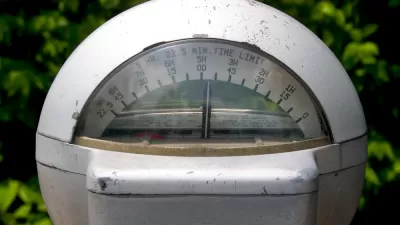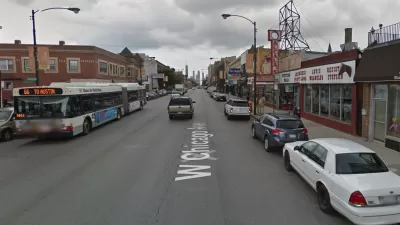Parking policy, and any potential change in it, is a highly contested issue in most cities. The integration of parking measures into a Sustainable Urban Mobility Plan (SUMP) can help achieve long-term goals.

The European Union's CIVITAS Initiative works to make sustainable and smart urban mobility a reality for all in Europe and beyond. It sponsors research and develops resources that provide practical guidance for creating more sustainable and livable cities. It also sponsors development of Sustainable Urban Mobility Plans (SUMPs) for all major cities.
The Park4SUMP project focuses on parking management. It identifies ways to efficiently manage on- and off-street parking.
A new handy guide, Parking and SUMP: Using parking management to achieve SUMP objectives, is designed to help city officials incorporate parking management strategies into SUMPs. It identifies specific phases in the SUMP planning process where parking management measures should be considered.
The guide acknowledges that efficient parking is an essential and strategic measure for managing travel demand and achieving SUMP objectives. This Guide is part of a compendium of guidance documents for developing Sustainable Urban Mobility Plans.
FULL STORY: New SUMP Topic Guide on Parking and SUMP

Manufactured Crisis: Losing the Nation’s Largest Source of Unsubsidized Affordable Housing
Manufactured housing communities have long been an affordable housing option for millions of people living in the U.S., but that affordability is disappearing rapidly. How did we get here?

Americans May Be Stuck — But Why?
Americans are moving a lot less than they once did, and that is a problem. While Yoni Applebaum, in his highly-publicized article Stuck, gets the reasons badly wrong, it's still important to ask: why are we moving so much less than before?

Using Old Oil and Gas Wells for Green Energy Storage
Penn State researchers have found that repurposing abandoned oil and gas wells for geothermal-assisted compressed-air energy storage can boost efficiency, reduce environmental risks, and support clean energy and job transitions.

Updating LA’s Tree Rules Could Bring More Shade to Underserved Neighborhoods
A new USC study finds that relaxing Los Angeles’ outdated tree planting guidelines could significantly expand urban tree canopy and reduce shade disparities in lower-income neighborhoods, though infrastructure investments are also needed.

California's Canal Solar Projects Aim to Conserve Resources and Expand Clean Energy
California’s Project Nexus has begun generating electricity from solar panels installed over irrigation canals, with researchers and state agencies exploring statewide expansion to conserve water and boost clean energy production.

HHS Staff Cuts Gut Energy Assistance Program
The full staff of a federal program that distributes heating and cooling assistance for low-income families was laid off, jeopardizing the program’s operations.
Urban Design for Planners 1: Software Tools
This six-course series explores essential urban design concepts using open source software and equips planners with the tools they need to participate fully in the urban design process.
Planning for Universal Design
Learn the tools for implementing Universal Design in planning regulations.
Heyer Gruel & Associates PA
City of Moreno Valley
Institute for Housing and Urban Development Studies (IHS)
City of Grandview
Harvard GSD Executive Education
Salt Lake City
NYU Wagner Graduate School of Public Service
City of Cambridge, Maryland





























